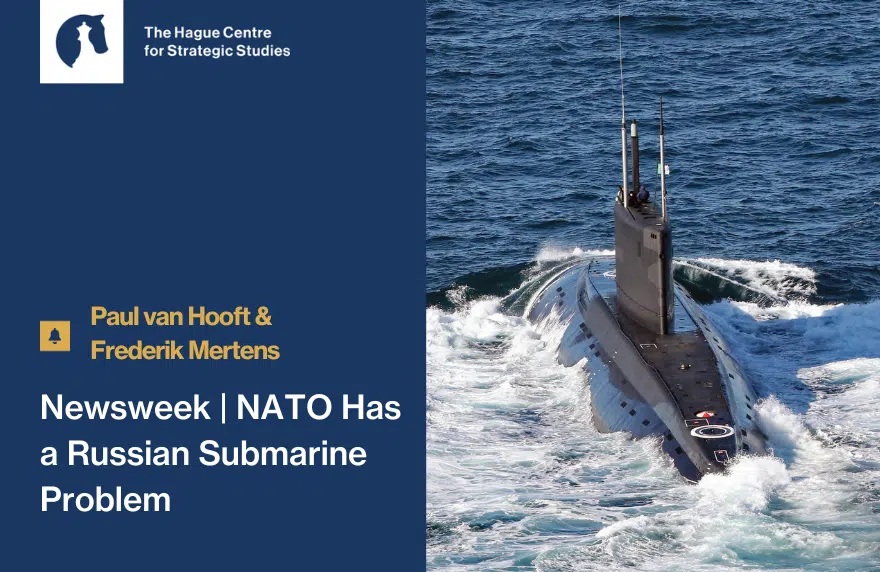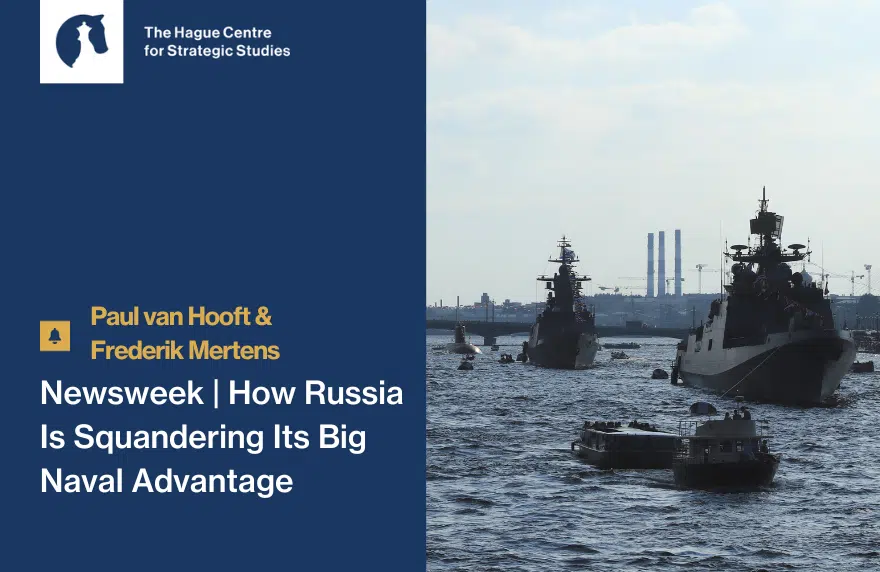Russia claims to have destroyed “the last of the Ukrainian warships.” Newsweek spoke with HCSS strategic analysts Frederik Mertens and Paul van Hooft about the impact of the sinking of the Yuri Olefirenko on the offensive potential of Ukraine’s Navy.
Russia’s claim to have the “last of the Ukrainian warships” out of action would have “almost no impact” on Ukraine’s naval power, according to experts. On Wednesday, Russia’s defense ministry said it had “destroyed” the Ukrainian ship Yuri Olefirenko in a “high-precision strike.” The vessel was taken out on May 29 in the southern Ukrainian port of Odesa, Russia said in an operational update.
Ukraine has not confirmed the claims, but Ukraine’s Navy has declined to comment to news outlets. Newsweek has reached out to Ukraine’s defense ministry and General Staff of the Armed Forces for comment via email. The Yuri Olefirenko—a landing vessel used for transporting troops and vehicles, including tanks—was built in Poland in 1970, according to military outlet Naval News. It was transferred to Ukraine’s Navy in the post-Soviet period.
But it is not a large amphibious ship, according to Frederik Mertens of the Hague Centre for Strategic Studies (HCSS). The sinking of the Yuri Olefirenko would have “almost no impact on the offensive potential of Ukraine’s Navy and no impact at all on the defense of Ukraine’s coast,” Mertens told Newsweek.
“The real amphibious capability the Ukrainians have is of a far different nature: small fast raiding craft,” he added.
The Yuri Olefirenko would only be able to carry around four Ukrainian tanks, compared to similar but larger vessels deployed during the 20th Century, which could fit four times that number on board, Mertens argued. It would also be of little use in launching an amphibious attack on the annexed Crimean peninsula, Mertens said. Ukraine does not have that capability, even with the ship, experts suggest.
A lot of contrasting information has circulated about the Yuri Olefirenko, with Russia having already previously claimed to have captured and destroyed the vessel, Paul van Hooft, another HCSS analyst, told Newsweek.
Russia could have struck the ship directly, without sinking it, he suggested, adding that some open source information also suggested that the ship Moscow has referred to does not match the physical descriptions of the Yuri Olefirenko. However, it could potentially be destroyed by Russia’s anti-ship missiles, Mertens continued.
“It’s entirely possible” that the vessel has been hit, said Mark Grove, senior lecturer at the University of Lincoln’s Maritime Studies Center at the Britannia Royal Naval College in Dartmouth, U.K., but the aging ship “was of little value to the Ukrainians.” “Her destruction has more symbolic or propaganda value,” he told Newsweek.
In April 2022, Russia’s Black Sea flagship, the Moskva, sank in the most high-profile loss for Russia’s navy since the start of the war in Ukraine in February 2022. Russia blamed a fire and a “munitions blast”—then the weather – for the loss of the flagship, although many Western analysts and U.S. intelligence suggested Kyiv’s Neptune anti-ship missiles may have been responsible.
Source: this article by Ellie Cook was published by Newsweek on June 1st, 2023.








